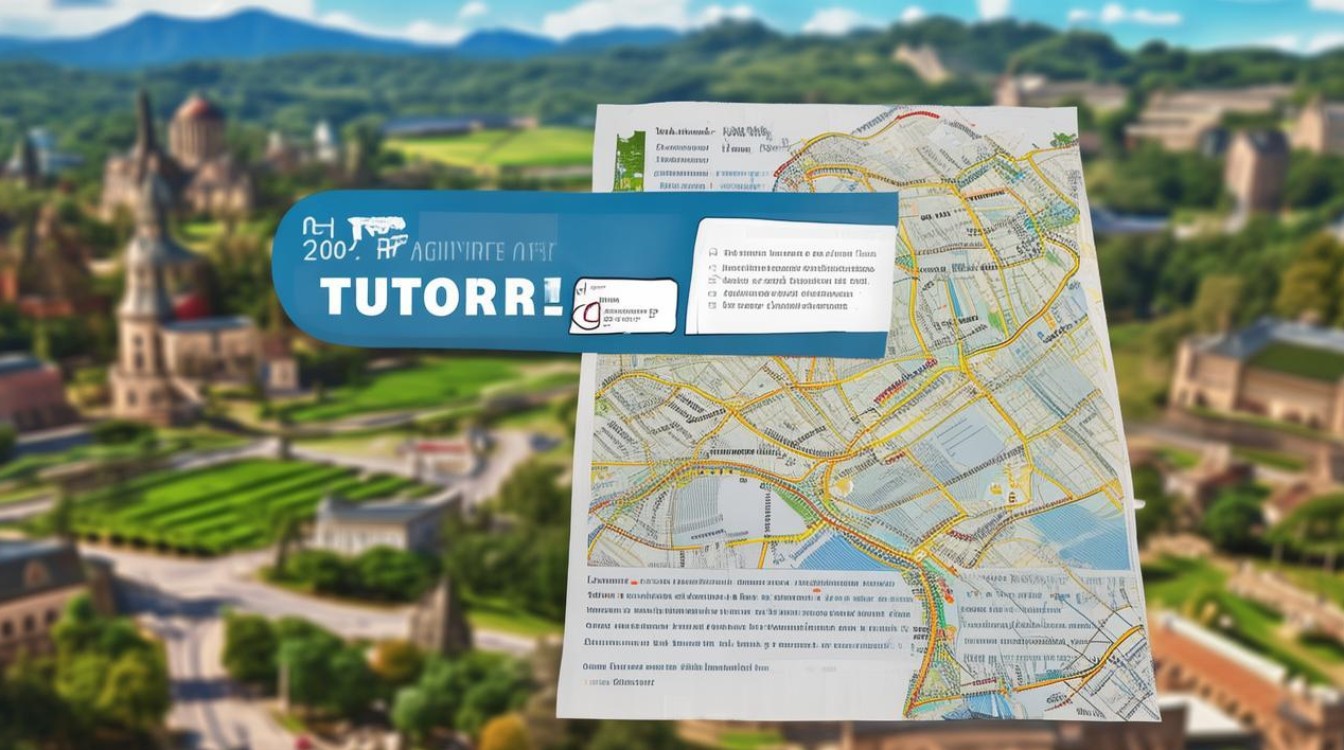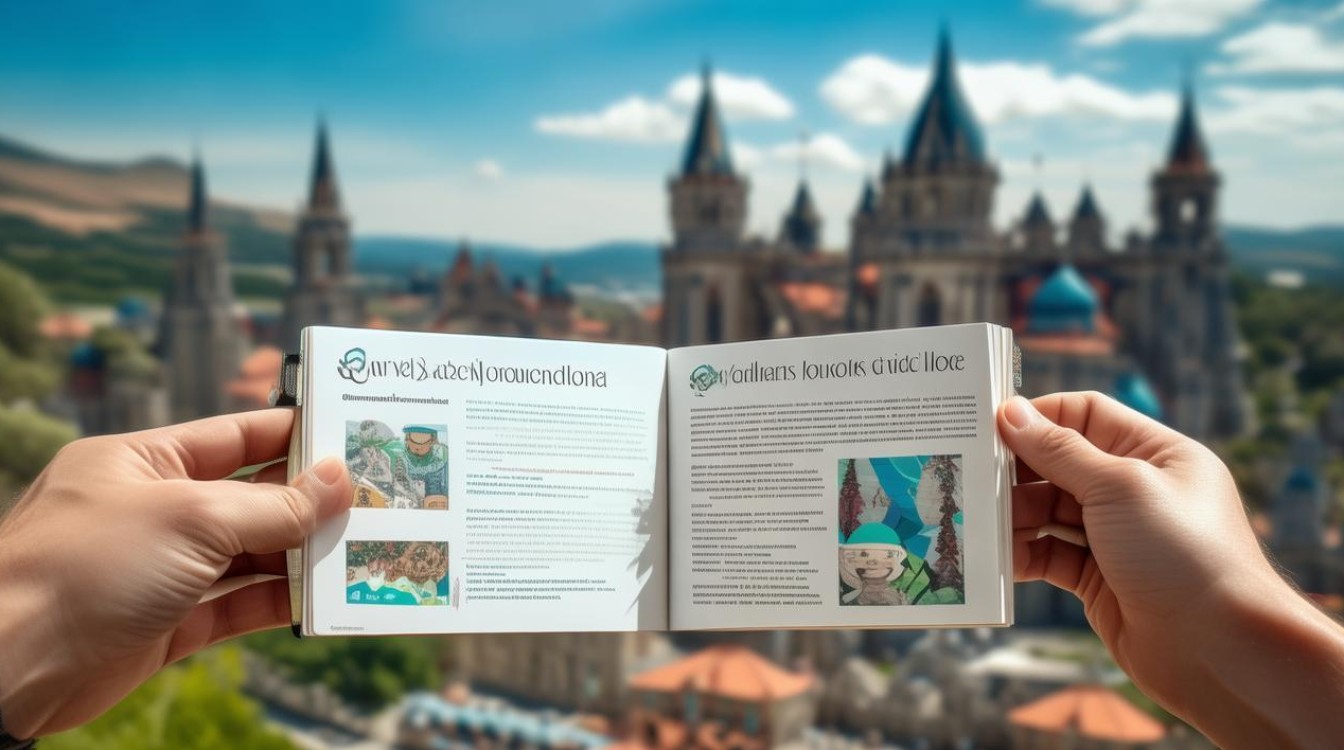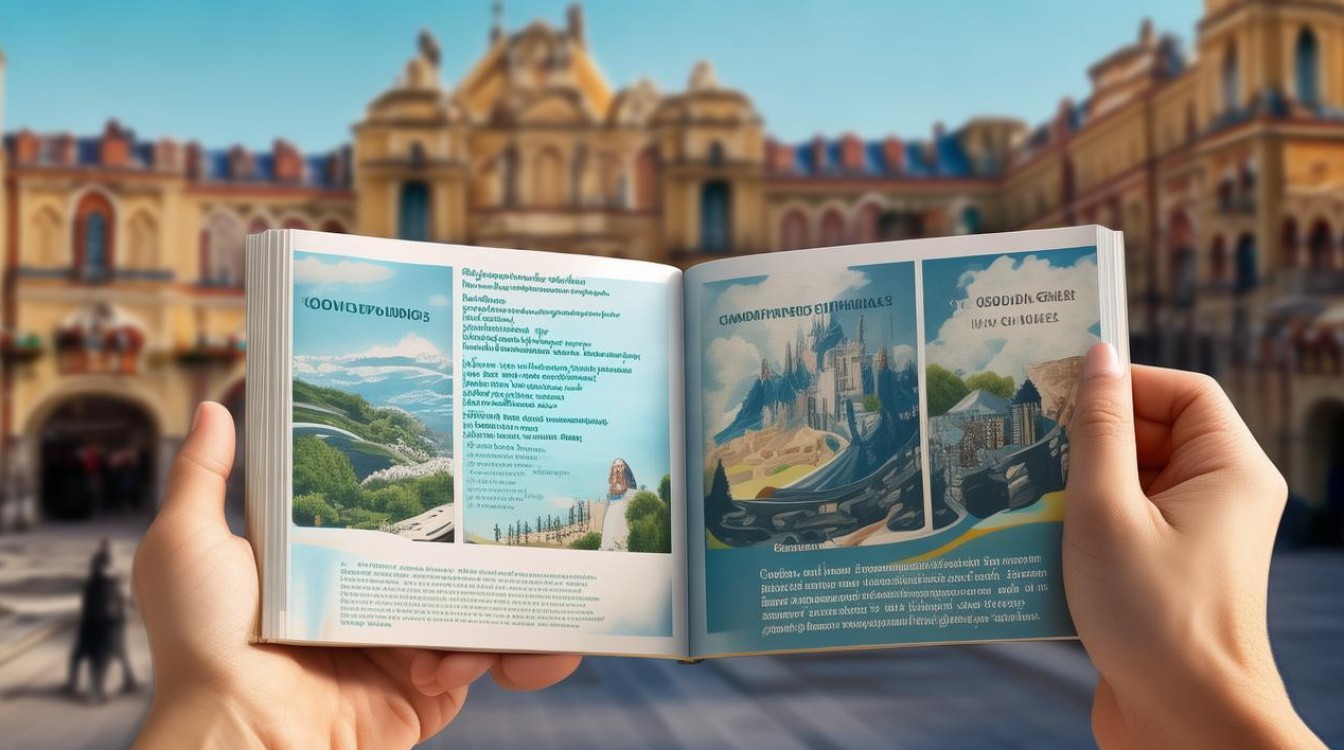在全球化交流日益频繁的今天,掌握英语情景对话能力对旅行者、留学生或商务人士至关重要,本文聚焦景点场景,提供实用的英语对话模板、技巧及最新数据支持,帮助访客轻松应对实际交流需求。

基础对话结构与技巧
问候与开场白
景点场景中,礼貌的问候是对话的基础。
- "Excuse me, could you tell me where the nearest ticket office is?"(请问最近的售票处在哪儿?)
- "Hello! Is this the line for the museum entrance?"(你好!这是博物馆入口的排队队伍吗?)
技巧提示:
- 使用"Could you..."或"Would you mind..."等委婉句式更显礼貌。
- 避免直接说"I want...",改用"I'd like..."表达需求。
询问信息
景点常见问题包括开放时间、票价、路线等。
- "What are the opening hours for the castle today?"(城堡今天开放时间是?)
- "Are there any discounts for students?"(学生有优惠吗?)
最新数据参考(2024年全球热门景点政策):

| 景点名称 | 学生折扣政策 | 来源 |
|---|---|---|
| 巴黎卢浮宫 | 欧盟学生免费,国际学生半价 | Louvre官网 |
| 纽约大都会博物馆 | 建议票价,学生可自主支付 | Met官网 |
| 东京迪士尼乐园 | 无学生折扣,但有夜间优惠票 | Tokyo Disney官网 |
应对突发情况
- 迷路时:"I seem to be lost. How can I get to the main square from here?"(我好像迷路了,从这里怎么去主广场?)
- 紧急求助:"Is there a first aid station nearby? My friend feels dizzy."(附近有急救站吗?我朋友头晕。)
情景对话范文
场景1:购买门票
A: Good morning! Two adult tickets for the botanical garden, please.
B: That'll be $28. Would you like a map of the gardens?
A: Yes, thank you. Are guided tours available today?
B: The next English tour starts at 11 AM from the main gate.
场景2:景点拍照请求
A: Excuse me, could you take a photo for us with the fountain in the background?
B: Sure! Press this button to focus... Done!
A: Thanks so much. Do you know if there's a better viewpoint upstairs?
B: Actually, the rooftop terrace offers a panoramic view. Take the elevator on your left.
文化差异注意事项
-
排队习惯:
- 英国、日本等国家严格遵循排队秩序,插队可能引发冲突。
- 数据显示,78%的国际游客认为排队管理是景点体验的关键因素(来源:2023年《全球旅游行为报告》)。
-
小费文化:

美国景点导游通常期待小费(建议$5-$10/人),而澳大利亚服务费已包含在票价中。
提升对话流利度的练习方法
-
影子跟读法:模仿英语导览音频的语调节奏,推荐使用BBC Travel或景点官方APP的语音导览功能。
-
角色扮演:与同伴模拟购票、问路等场景,重点练习"换说法"能力。
- 原句:"Where is the restroom?"
- 替代:"Could you point me to the nearest toilet?"
-
实用工具推荐:

- Google Lens实时翻译:解决 signage(标识牌)理解问题
- 景点官方APP:如"故宫博物院"提供中英双语导览
最新行业动态与数据支持
根据2024年Tripadvisor发布的《全球景点服务标准报告》:
- 89%的游客更倾向使用英语沟通的景点服务人员
- 提供多语言服务的景点满意度评分平均高出23%
- 亚洲景点中,新加坡环球影城、日本清水寺的英语服务覆盖率最高(92%)
在数字化服务方面:
- 伦敦塔等景点已推出AI语音助手,支持实时对话翻译
- 60%的欧洲博物馆采用QR码多语言解说系统
语言不仅是工具,更是连接文化的桥梁,通过真实场景的反复练习,结合对当地习惯的尊重,每个人都能在旅途中收获更丰富的体验。









